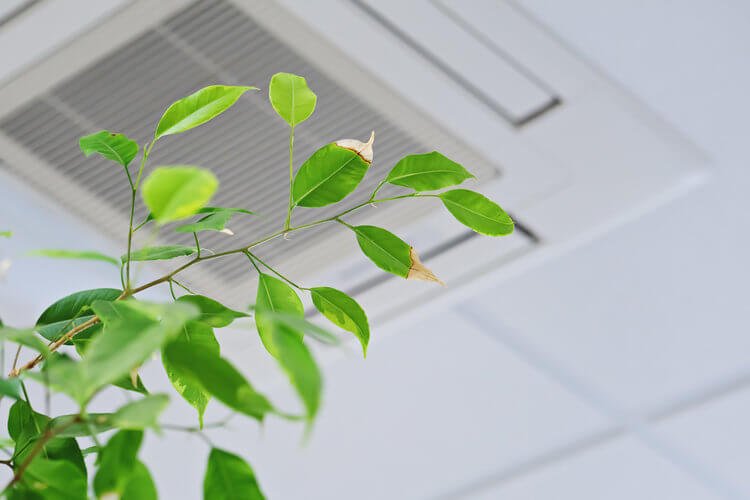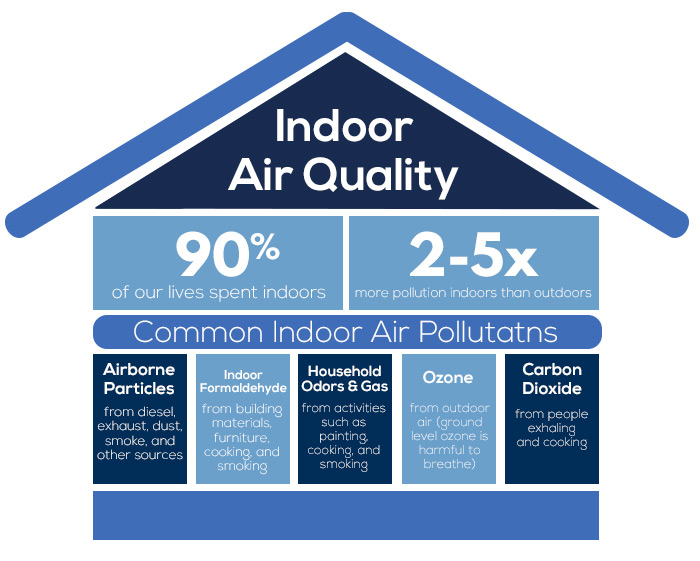Indoor Air Quality, More Important Than Ever
Due to the global pandemic, many of us here in SWFL are spending more time than ever inside the house. The problem with that is how poor the indoor air quality is in most homes. According to Environmental Protection Agency (EPA) statistics, indoor air quality is quite often five times more polluted than the air outside! Think about it, when it’s hot and humid out, we keep our windows and doors shut to save energy and keep our AC cooled air in. All the materials that make up your furniture, carpets, textiles, paint, and cleaning products often off-gas the chemicals that were used to create them. So the air inside your home contains those toxic chemical vapors, along with pollen, mold, bacteria and yes, viruses, and all of these pathogens pass through your central air conditioning system.
Your first line of defense against all of these air borne pathogens are the HVAC filters you use. HVAC filters are designed to protect you and your air conditioning equipment from air borne dust and debris. But that only happens when they are changed regularly and here’s why you need to be sure to have it done every couple of months.

5 Tips on How to Improve Indoor Air Quality
- Better Indoor Air Quality
Typical HVAC filters are made of paper and while they do clean the dust and larger particulates out of the air, they were not designed to trap pet dander, mold, viruses or bacteria. To truly improve the indoor air quality through filter use alone, you should look into HEPA filters. HEPA filters are created from tightly packed layers of glass fibers and the best ones can trap more than 99% of pollen, dust, and smoke particles. You will want to choose one with a MERV rating or 10 or higher. We can help you get the right filters for your HVAC equipment.
- Damage Control for Your AC
Letting dust, dirt and debris accumulate on your filters allows for a layer of grime to build up on your AC’s motors, fans, pulleys and other moving parts. This increases the friction on those parts, making the motor work harder and longer, and increasing the wear and tear on the system as a whole. Your HVAC system needs air flow to work properly. When your filters are clogged, air flow is compromised which leads to overheating your compressor or freezing up the condenser coils. Both of these are expensive items to repair. Changing your filters regularly prevents this type of damage from occurring.
- Dust Reduction
If you feel like your furniture is constantly covered in a fine layer of dust, chances are you are overdue for changing your HVAC filters. When your filters are clogged, more dust ends up in your duct work. Then as the cooled air blows through the ducts, that extra dust gets blown through your vents and onto your furniture. When you put new filters in, they can do their job better and you’ll spend less time dusting the house.
- Energy Savings
When your filters are dirty, your whole system gets dirty. Extra dust and dirt accumulates on the moving parts of your system, slowing them down and making them work harder. All of that means your HVAC system has to use more power and run longer to reach the cool air temperature you are asking of it. That means expending more energy, which costs you more money in electricity usages. So save yourself some money, and save the planet as well by changing your filters regularly.
- Extend the Life of Your AC
Most of the AC’s sold today have a 10-warranty, but that is based on optimal operating conditions. But your AC can only run optimally if it’s had maintenance check ups frequently, which includes changing the filters. This ensures prolonging the life of the system and it will have your HVAC perform reliably for many years.
We recommend changing your HVAC filters at least every couple of months. If you have a maintenance contract with us, our technician will change the filters for you during every visit, but you will need to do it yourself in between those visits. We can tell you which filter size and type you should use. Give us a call at 239-462-4068.

